General Secretary To Lam stated that the voices of the National Assembly deputies today are not only personal opinions, but also the voices of the voters that the deputies represent. It is the voice of the realities of economic , social, defense, and security life, and the voice of lawmakers.
Suggesting a number of content groups for delegates to exchange and discuss in depth about institutions and laws, the General Secretary said that we have enacted laws to manage society by law, building a socialist rule-of-law state of the people, by the people, for the people. But in practice, there is still a situation where "the law is correct but implementation is difficult", "it is clear in the parliament, but at the grassroots level it is difficult".
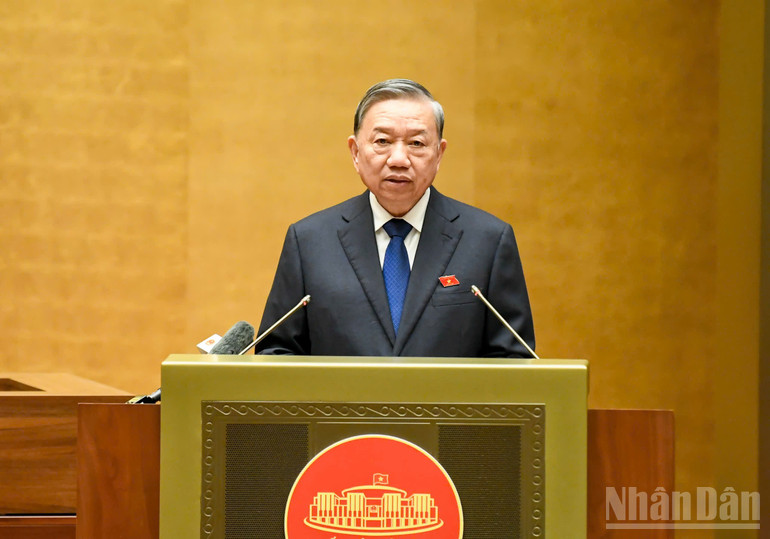
The General Secretary asked the delegates to focus on clearly stating why there are laws, decrees, and circulars that are issued very elaborately and densely, but grassroots officials do not dare to implement them, businesses struggle to find a way out, and people are confused and confused. Where are there overlaps, where are there different understandings between ministries and branches; where are the powers delegated but force people to take responsibility beyond their control?
"We must aim for a legal system that is easy to remember, easy to understand, and easy to implement," the General Secretary emphasized, and required that the words in the law must be concise, clear, not confusing, and not leave any room for abuse or evasion. The promulgated policies must be measurable in terms of impact, control risks, and especially must create convenience rather than create additional procedures. A good law is not a well-written law, but a law that is implemented in life.
Regarding the building and perfecting of the socialist rule of law state of Vietnam, the General Secretary emphasized that a rule of law state is not only about having a complete legal system, but first of all, about upholding the Constitution and the law and controlling power to be public, transparent and accountable to the people.
The General Secretary hopes that delegates' opinions will focus on the question: Have we done enough to ensure that every power is bound within the legal framework, operates with the right authority, for the right purpose, and in the right interests of the people?
"Is there any gap that makes people feel like "if they want it, they can get it, if they don't want it, they can't"? Is there any situation where people have to "beg" for things they should "enjoy"? If there is no complete answer, that is where the rule of law state is incomplete," said the General Secretary.
The General Secretary also made it clear that building our rule-of-law State means building a strong state that does not abuse power; has discipline but is not far from the people; acts decisively but must be humane, persuasive, and have dialogue. Such orientations need to be made clear in the 14th Congress Documents.
Regarding decentralization, delegation of power and organizational structure, according to the General Secretary, we have discussed the issue of decentralization and delegation of power for many years; there have been many resolutions and projects to streamline the apparatus, rearrange focal points, and innovate the local government model.
Now we need to answer two questions: what to decentralize, to whom, and under what conditions; and what will be the mechanism for responsibility, inspection, and supervision? The General Secretary asked the delegates to give their opinions directly on this content.
Accordingly, where subordinates can make decisions faster and closer to the people, they must boldly delegate power. But delegation of power does not mean "pushing down work" or "pushing down risks". Delegating power must come with resources, human resources, tools, and a legal safety zone so that officials dare to act and take responsibility for the common good, not unjustly taking personal responsibility.
Regarding the two-tier local government model, the General Secretary said that we are gradually reorganizing, moving towards a streamlined, effective and efficient apparatus. This is a very new, very important and sensitive content, directly related to the lives of the people and of cadres at the grassroots level.
The General Secretary asked the delegates to give specific opinions on how the two-tier local government model should be designed so that people are not far from the government and public services are not interrupted. Do not let the announcement of streamlining the apparatus create more layers of asking and giving in reality.
Another important thing is what rights and resources the local government must have for the task of creating development at the grassroots level; what additional legal framework is needed to carry out these tasks.
Along with that is the relationship between the 3 levels of government: central, provincial/municipal and grassroots. The 3 levels must be a smoothly operating entity, sharing responsibilities and supporting each other. "Absolutely not 3 layers specializing in "passing responsibilities to each other" so that the people run around. Comrades are National Assembly delegates, going to the grassroots a lot, please give your detailed comments on these places," said the General Secretary.
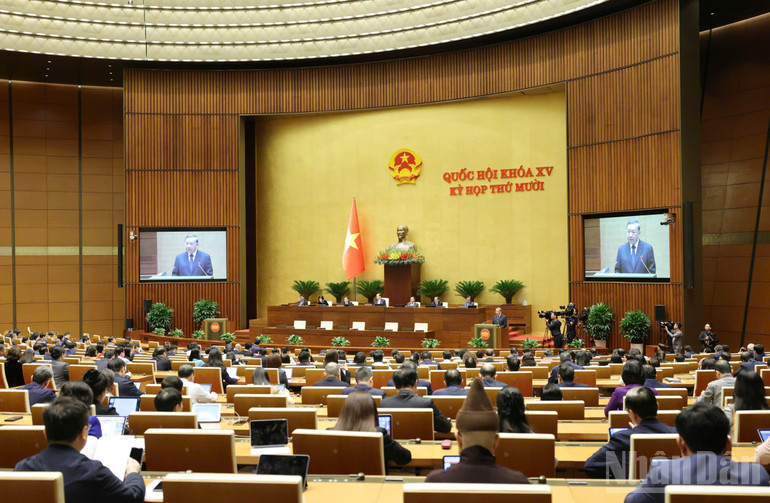
Regarding the organic relationship between the Party, the State, the Fatherland Front, organizations and the people, the General Secretary hopes that delegates will contribute ideas on additional mechanisms for the Party to lead absolutely and comprehensively but not do it for him, not make excuses, and not be lax.
The Government manages and operates according to the law, dares to take personal responsibility; the Fatherland Front and socio-political organizations truly become a trustworthy bridge between the Party, the State and the people. The people are not only beneficiaries but also participants, supervisors, critics and companions. If we talk about taking the people as the center, we must design a mechanism so that the people have a real voice, have the right to supervise and have the opportunity to participate in the issues.
Regarding the Party's leadership role in the legal system and in practical management, the General Secretary stated that our Party is the ruling Party, and ruling means taking responsibility before the people for the country's development and for the people's daily lives. Ruling does not only set out policies but also organizes implementation, checks implementation and is responsible for the results.
Therefore, the documents presented at the 14th Congress cannot just say "strengthening the Party's leadership" in a general way. We must clarify the Party's leadership to ensure that all policies and laws must truly serve the people, develop the country, maintain independence, sovereignty, territorial integrity, maintain socio-political stability, and preserve the great national unity bloc.
The Party leads to fight against sectoral and local thinking, group interests, negativity, corruption, and waste. The Party leads to protect those who dare to think, dare to do, and dare to take responsibility for the common good. "I want delegates to give their opinions on whether the document has enough elements and things, is clear, and addresses the existing weaknesses," said the General Secretary.
Regarding the spirit of innovation in thinking, innovation in working methods, innovation in national governance according to the motto of creation and for the people, the General Secretary pointed out that the world changes very quickly, and domestic reality also changes very quickly. If our thinking is slower than reality, the document will become outdated immediately, even as soon as it is passed.
Therefore, the General Secretary asked the delegates to read the document with the spirit of whether there are any points that still have old thinking, old ways of speaking, old ways of doing things, or points where we still maintain the habit of managing by asking and giving, while the State should play a constructive role, serving the people and businesses?
The General Secretary asked delegates to contribute specific examples from their respective sectors, localities, and fields, including where cumbersome procedures discourage businesses; where people are frustrated because they have to go back and forth many times without getting things done; and where there is still "mechanism manipulation". "We must state it directly, not avoid it. Only by looking directly can we correct those shortcomings and limitations," the General Secretary noted.
Regarding new points and breakthroughs, the Document Subcommittee has raised 18 new points and orientations considered to be breakthroughs, demonstrating the spirit of daring to innovate, daring to change the development model, daring to reorganize the apparatus and operating methods.
The General Secretary asked the delegates to answer two very important questions: first, are the 18 new points sufficient? Are any of them still at the policy and orientation level, and will be studied while society is demanding specific answers, with a clear roadmap, clear responsibilities, and clear people?
The second question is, according to the delegates - those who are close to the people, close to the people, understand real life, understand the thoughts of voters, what issues have not been properly named in the document? What knots are there that if not resolved now, we will have to pay a higher price in the next 5 years. The General Secretary asked the delegates to speak frankly, speak completely, and clearly about those points.
After the orientation speech of General Secretary To Lam, National Assembly delegates discussed in groups the draft documents to be submitted to the 14th National Congress of the Party.
Source: https://nhandan.vn/tong-bi-thu-to-lam-goi-mo-7-nhom-noi-dung-de-dai-bieu-quoc-hoi-gop-y-du-thao-van-kien-dai-hoi-xiv-post920492.html




![[Photo] The road connecting Dong Nai with Ho Chi Minh City is still unfinished after 5 years of construction.](https://vphoto.vietnam.vn/thumb/1200x675/vietnam/resource/IMAGE/2025/11/04/1762241675985_ndo_br_dji-20251104104418-0635-d-resize-1295-jpg.webp)
![[Photo] Panorama of the Patriotic Emulation Congress of Nhan Dan Newspaper for the period 2025-2030](https://vphoto.vietnam.vn/thumb/1200x675/vietnam/resource/IMAGE/2025/11/04/1762252775462_ndo_br_dhthiduayeuncbaond-6125-jpg.webp)
![[Photo] Ho Chi Minh City Youth Take Action for a Cleaner Environment](https://vphoto.vietnam.vn/thumb/1200x675/vietnam/resource/IMAGE/2025/11/04/1762233574890_550816358-1108586934787014-6430522970717297480-n-1-jpg.webp)
![[Photo] Ca Mau "struggling" to cope with the highest tide of the year, forecast to exceed alert level 3](https://vphoto.vietnam.vn/thumb/1200x675/vietnam/resource/IMAGE/2025/11/04/1762235371445_ndo_br_trieu-cuong-2-6486-jpg.webp)





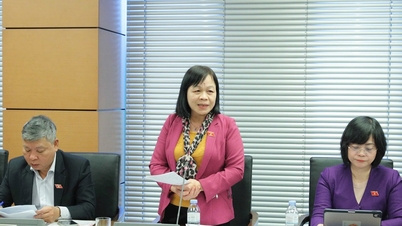

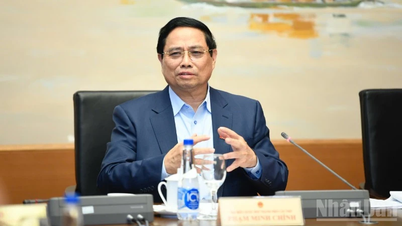
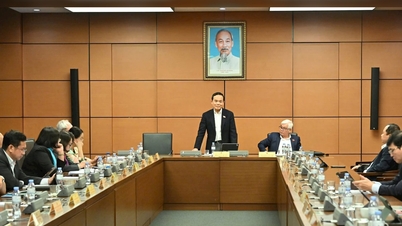




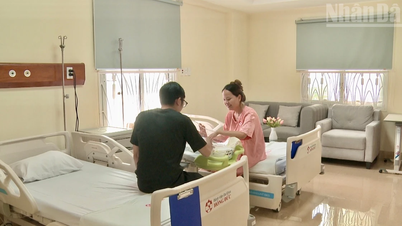


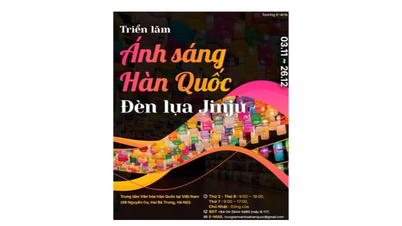


















































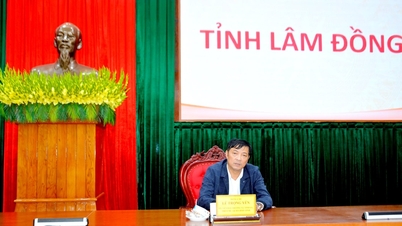

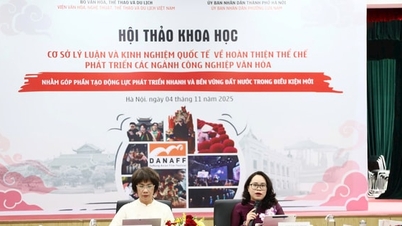



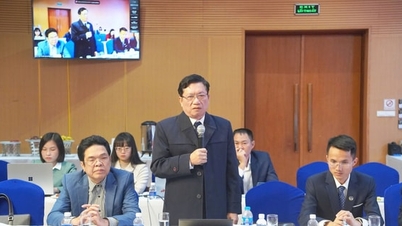

















Comment (0)